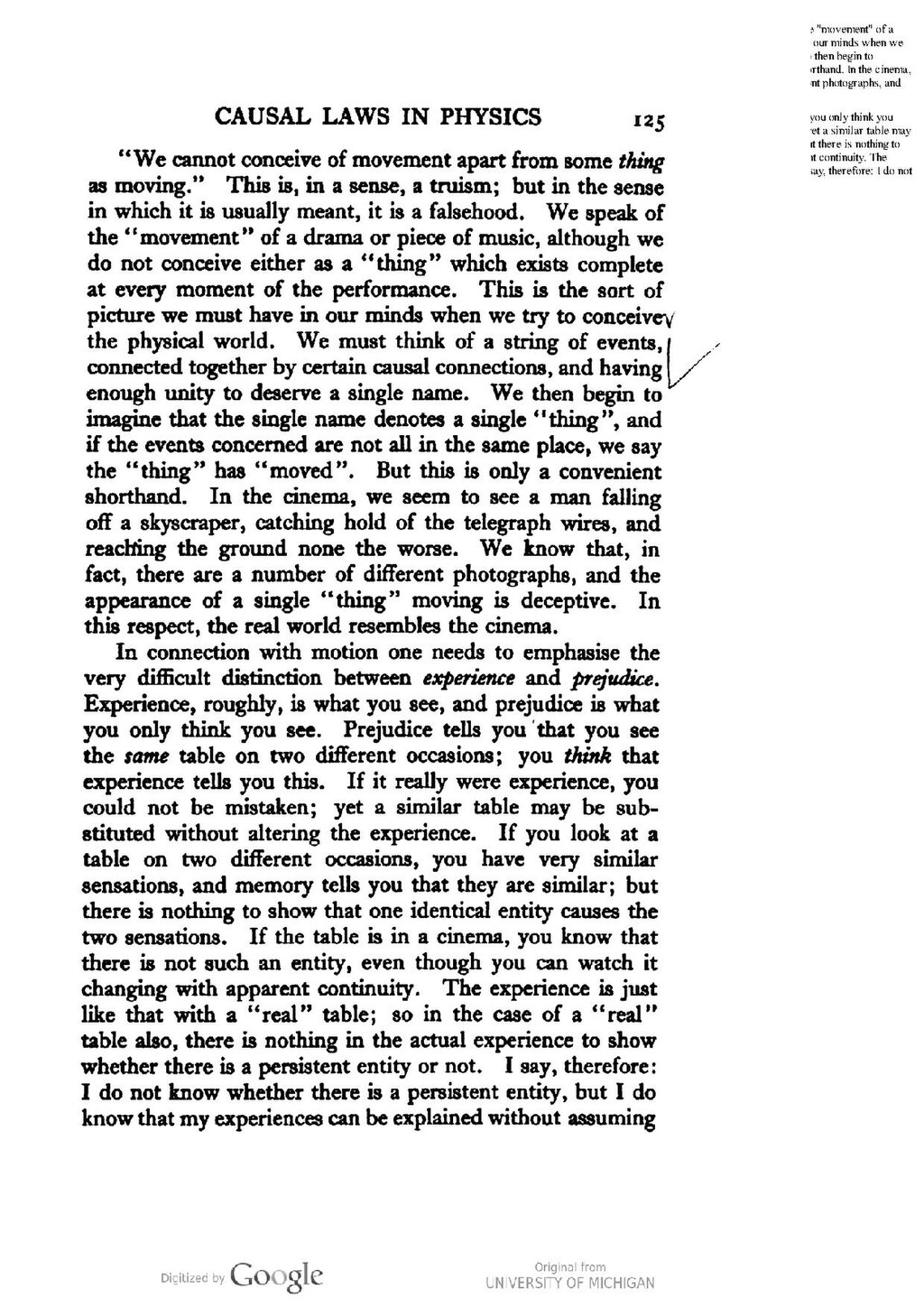"We cannot conceive of movement apart from some thing as moving." This is, in a sense, a truism; but in the sense in which it is usually meant, it is a falsehood. We speak of the "movement" of a drama or piece of music, although we do not conceive either as a "thing" which exists complete at every moment of the performance. This is the sort of picture we must have in our minds when we try to conceive the physical world. We must think of a string of events, connected together by certain causal connections, and having enough unity to deserve a single name. We then begin to imagine that the single name denotes a single "thing", and if the events concerned are not all in the same place, we say the "thing" has "moved". But this is only a convenient shorthand. In the cinema, we seem to see a man falling off a skyscraper, catching hold of the telegraph wires, and reaching the ground none the worse. We know that, in fact, there are a number of different photographs, and the appearance of a single "thing" moving is deceptive. In this respect, the real world resembles the cinema.
In connection with motion one needs to emphasise the very difficult distinction between experience and prejudice. Experience, roughly, is what you see, and prejudice is what you only think you see. Prejudice tells you that you see the same table on two different occasions; you think that experience tells you this. If it really were experience, you could not be mistaken; yet a similar table may be substituted without altering the experience. If you look at a table on two different occasions, you have very similar sensations, and memory tells you that they are similar; but there is nothing to show that one identical entity causes the two sensations. If the table is in a cinema, you know that there is not such an entity, even though you can watch it changing with apparent continuity. The experience is just like that with a "real" table; so in the case of a "real" table also, there is nothing in the actual experience to show whether there is a persistent entity or not. I say, therefore: I do not know whether there is a persistent entity, but I do know that my experiences can be explained without assuming
